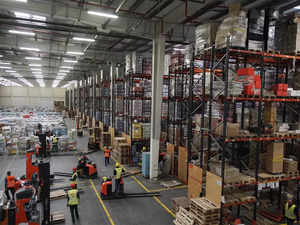 New Delhi: The government could offer incentives in the form of tax breaks or subsidies to prompt India Inc to adopt a new standard that aims to drive use of new technology and digitisation, a senior official said. “A major initiative is being mulled to push the industry to adopt ‘Industry 4.0’,” the official said.
New Delhi: The government could offer incentives in the form of tax breaks or subsidies to prompt India Inc to adopt a new standard that aims to drive use of new technology and digitisation, a senior official said. “A major initiative is being mulled to push the industry to adopt ‘Industry 4.0’,” the official said.
Industry 4.0, or the fourth industrial revolution, will have as its mainstay increased digitisation and interconnection of products, value chains and business models. It has been devised by the Niti Aayog.
Fiscal support such as subsidies or tax breaks for a fixed period could be considered for industriesNSE 0.73 % adopting the standard, the official said. Aayog will initiate stakeholder consultation before the government introduces a policy in this regard, the person said.
Adoption of this standard is expected to give a huge boost to micro, small and medium enterprises (MSMEs) that manufacture products such as sensors, actuators, drives, synchronous motors, communication systems, computer displays, and auxiliary electromechanical systems used in digitisation and new tech.
Adoption of Industry 4.0 is expected to result in operational efficiencies, cost control and revenue growth, and could have significant impact on sectors such as automobile, pharmaceuticals, chemicals and financial services, the official said.

The move weighs high on the government agenda that is keen to make it easier to do business in the country, and is eyeing technology including artificial intelligence in a big way.
Prime Minister Narendra Modi had in October last year spoken about Industry 4.0 and how it will change the face of industry. “Industry 4.0 will touch those aspects which still remain untouched so far,” he had said while speaking at the launch of the World Economic Forum (WEF) Centre for the Fourth Industrial Revolution. “It will change the nature of the job and create new opportunities.”
BJP’s election manifesto had also promised to chalk out a new industrial policy with an eye on Industry 4.0 with technologiesNSE 1.15 % such as artificial intelligence and electric mobility.
[“source=economictimes.indiatimes.”]




